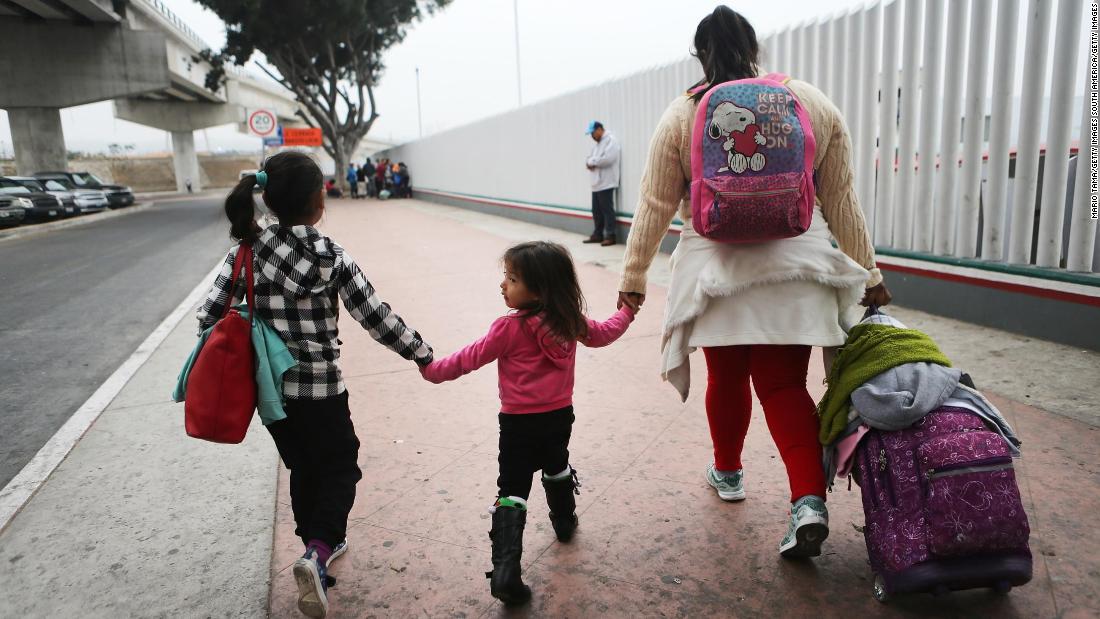
Prior to Sunday, the agency carried out reviews that included confirming bus routes, coordinating with NGOs, communicating with family members and ensuring that asylum seekers had a means to reach a final destination within the United States before release from custody, according to ICE.
This change could create the need for more non-governmental support as families continue to be released without a reviewed travel and communications plan.
This was a "self-imposed process" and there is no requirement that these reviews be conducted, according to ICE spokesperson Yasmeen Pitts O'Keefe.
"In light of the incredibly high volume of [family units] presenting themselves along the Arizona border, ICE no longer has the capacity to conduct these reviews without risking violation of the Flores limitations on lengths of stay for minors in both [Customs and Border Protection] CBP and ICE custody," O'Keefe said in a statement.
The Flores settlement, which is currently being challenged in court, is a decades-old court agreement that limits the length of time that undocumented immigrant children can be held in detention.
The current Flores court challenge arose after the Trump administration announced its "zero-tolerance" policy this spring which lead to thousands of children being separated from their families as parents faced criminal prosecution. In June, President Donald Trump reversed the policy --- signing an executive order that ended separations and sought to keep families who entered the United States without proper inspection detained together while going through immigration proceedings.
The U.S. District Court of Central California rejected a request this summer from the government asking to hold children for more than the allowed 20 days, so that families could remain together in detention.
The administration has repeatedly encouraged asylum seekers to present themselves at a legal port of entry to make their claims.
According to ICE, the reviews for its post-release plan are "time and resource intensive" and can delay the release of families by several days. It is unclear exactly how much time this process was contributing to lengths of time in government custody.
The change in ICE policy came to light after reports that asylum seekers in Arizona were being released to churches.
The families that are released will be placed in ICE's "alternative to detention" program and ordered to appear in immigration court, according to ICE.
Shadow Rock United Church of Christ in Phoenix said it was providing shelter for 100 individuals and families recently released from ICE custody.
"If it is a question of a family spending the night in chairs at the bus station waiting to travel, we know the answer is simple. We will provide a safe place to sleep, food to eat, showers and companionship to our neighbors while they prepare for the next leg of their journey," Shadow Rock said in a press release Tuesday.
CBP was not immediately able to provide more information about its role in the releases or review process.
It was also unclear whether ICE was terminating the post-release review process for jurisdictions outside of Arizona.
Bagikan Berita Ini














0 Response to "ICE ending practice of coordinating plans for asylum-seeking families in Arizona"
Post a Comment